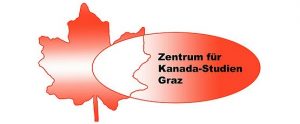The Journal of the Austrian Association for American Studies (JAAAS) is a peer-reviewed gold open access journal.
- Are you looking for a peer-reviewed outlet to publish your cutting-edge research article in American Studies?
- Would like to put the spotlight on your current project in the form of a short essay?
- Do you want to write reviews about the latest or perhaps overlooked publications in American Studies and thus help bring them to the attention of your peers?
- Would you like to expand your experience as a peer reviewer?
Consider the newly inaugurated JAAAS: Journal of the Austrian Association for American Studies as your venue. JAAAS seeks to create an interdisciplinary space for debate on all aspects of American culture and functions as a forum for both Americanists in Austria and Europe as well as in the global academic community. Published twice a year (spring and fall), the journal welcomes submissions on a wide range of topics, aiming to broaden the multi- and interdisciplinary study of American cultures. The journal welcomes contributions in American cultural and literary studies from inter- and transnational as well as European perspectives that deal with all aspects of American culture and society including history, music, politics, sociology, geography, ecocriticism, race, ethnicity, sexuality, gender, age, class, law, technology, and (digital) media.
JAAAS invites the following types of contributions:
1) Research Articles (double-blind peer-reviewed) are essays that engage in theoretical, practical, pedagogical, and/or historical analysis. The article—including endnotes and citations—should be between 5,000 and 9,000 words.
2) Short Essays (double-blind peer-reviewed) discuss a novel and innovative topic, address new and emergent ideas, engage critically with scholarly controversies, and/or introduce emergent approaches in a concise manner. These pieces test new disciplinary trajectories. The word limit for these pieces is 3,000 words.
3) Reviews (editorial review) are critical essays that evaluate academic books and other sources/materials relevant for American Studies, and are 1,000 to 2,500 words, including endnotes and citations. If you would like to write a review, please contact our reviews editor, Joshua Parker.
JAAAS aims to publish open as well as thematic issues. While our thematic issues usually emerge from the annual meetings of the Austrian Association for American Studies, we also seek submissions to open issues. JAAAS is supported by the Austrian Association for American Studies (AAAS) and hosted by the University of Graz, Austria.

